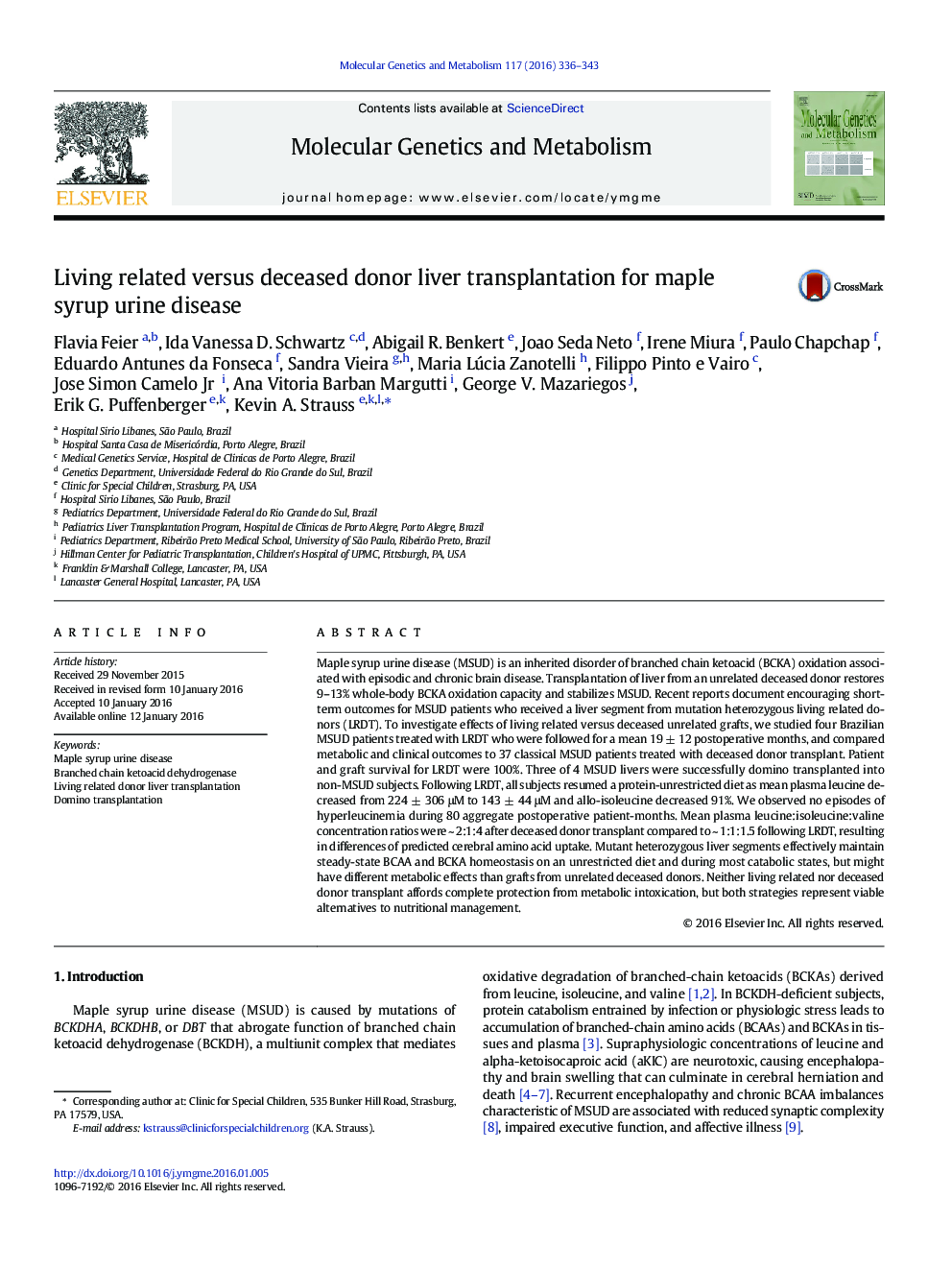| Article ID | Journal | Published Year | Pages | File Type |
|---|---|---|---|---|
| 10832581 | Molecular Genetics and Metabolism | 2016 | 8 Pages |
Abstract
Maple syrup urine disease (MSUD) is an inherited disorder of branched chain ketoacid (BCKA) oxidation associated with episodic and chronic brain disease. Transplantation of liver from an unrelated deceased donor restores 9-13% whole-body BCKA oxidation capacity and stabilizes MSUD. Recent reports document encouraging short-term outcomes for MSUD patients who received a liver segment from mutation heterozygous living related donors (LRDT). To investigate effects of living related versus deceased unrelated grafts, we studied four Brazilian MSUD patients treated with LRDT who were followed for a mean 19 ± 12 postoperative months, and compared metabolic and clinical outcomes to 37 classical MSUD patients treated with deceased donor transplant. Patient and graft survival for LRDT were 100%. Three of 4 MSUD livers were successfully domino transplanted into non-MSUD subjects. Following LRDT, all subjects resumed a protein-unrestricted diet as mean plasma leucine decreased from 224 ± 306 μM to 143 ± 44 μM and allo-isoleucine decreased 91%. We observed no episodes of hyperleucinemia during 80 aggregate postoperative patient-months. Mean plasma leucine:isoleucine:valine concentration ratios were ~ 2:1:4 after deceased donor transplant compared to ~ 1:1:1.5 following LRDT, resulting in differences of predicted cerebral amino acid uptake. Mutant heterozygous liver segments effectively maintain steady-state BCAA and BCKA homeostasis on an unrestricted diet and during most catabolic states, but might have different metabolic effects than grafts from unrelated deceased donors. Neither living related nor deceased donor transplant affords complete protection from metabolic intoxication, but both strategies represent viable alternatives to nutritional management.
Keywords
Related Topics
Life Sciences
Biochemistry, Genetics and Molecular Biology
Biochemistry
Authors
Flavia Feier, Ida Vanessa D. Schwartz, Abigail R. Benkert, Joao Seda Neto, Irene Miura, Paulo Chapchap, Eduardo Antunes da Fonseca, Sandra Vieira, Maria Lúcia Zanotelli, Filippo Pinto e Vairo, Jose Simon Jr, Ana Vitoria Barban Margutti,
